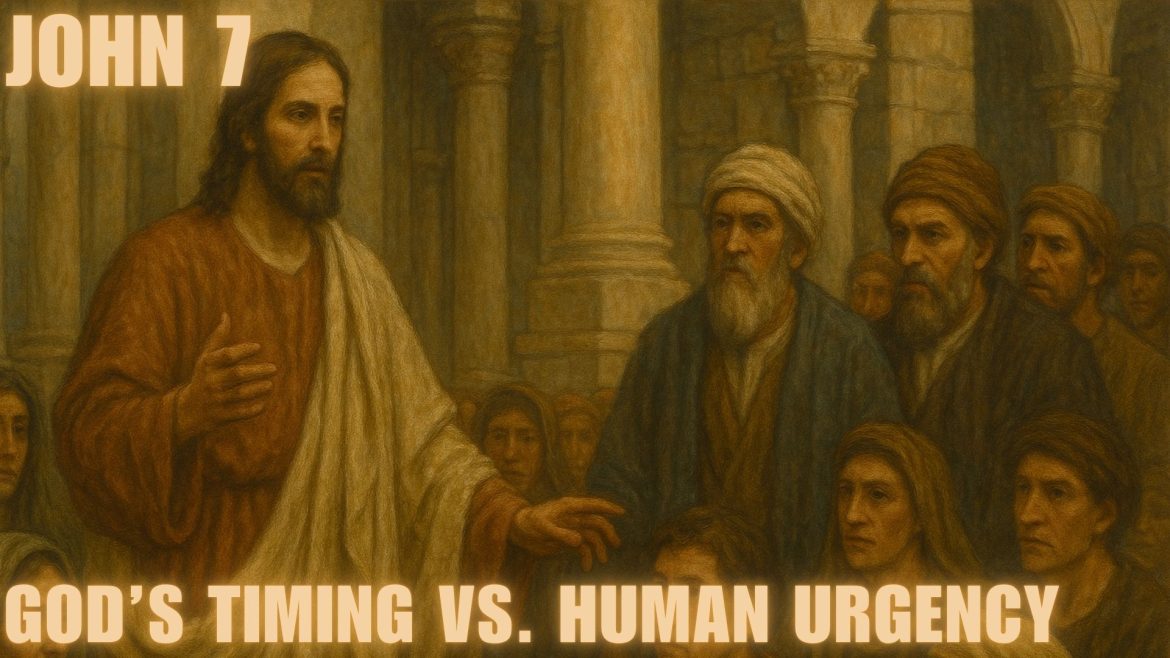In the seventh chapter of the Gospel of John, we encounter a significant event in Jesus’ ministry—the Feast of the Booths, also known as Sukkoth or the Feast of the Tabernacles. This chapter reveals a pivotal moment filled with conflict, teaching, and deep spiritual insights that continue to resonate with believers today.
Setting the Scene: The Feast of the Booths
The Feast of the Booths was a joyful celebration commemorating the Israelites’ journey through the wilderness and their reliance on God before the establishment of Solomon’s Temple by carrying the tabernacle which was a temporary home for God. Families built temporary shelters, reminiscent of the tabernacles used during their ancestors’ travels. Jesus, aware of the growing threats against his life, initially chose to stay in Galilee while his disciples went ahead to Jerusalem.
Jesus’ Reluctance and Private Journey
Despite the danger, Jesus later went to the feast privately. The atmosphere in Jerusalem was charged with anticipation and mixed opinions about Jesus. Some saw him as a good man, while others viewed him as a deceiver. The tension was palpable as people whispered about his whereabouts, reflecting the divided opinions of the time.
Teaching in the Temple: A Bold Move
Midway through the feast, Jesus appeared at the temple and began teaching. His wisdom and authority astonished the crowd, especially since he had no formal rabbinical training. Jesus clarified that his teachings were from God, challenging the Jewish leaders’ adherence to the Law and exposing their hypocrisy. His boldness provoked strong reactions, including accusations of demon possession and a plot to kill him.
Living Water: An Invitation to Spiritual Fulfillment
On the final day of the feast, Jesus made a profound declaration: “If anyone is thirsty, let him come to me and drink.” This invitation to receive the living water symbolizes spiritual nourishment and the Holy Spirit’s future indwelling of believers. This statement, coupled with his teachings, led to further debates about his identity—was he a prophet, the Messiah, or an imposter?
Division Among the People
Jesus’ teachings caused significant division among the people and religious leaders. Some believed in him, while others were skeptical or hostile. Even Nicodemus, a respected Pharisee, defended Jesus, highlighting the injustice of condemning him without a fair hearing. This moment underscored the profound impact of Jesus’ message and the resistance he faced.
Conclusion
John 7 provides a vivid account of Jesus during the Feast of the Booths, illustrating his courage in proclaiming the truth amidst hostility. His teachings about living water and the call to spiritual fulfillment continue to inspire believers. This chapter reminds us of the inevitable divisions that arise when confronting the truth of Jesus’ identity and message. As we reflect on these events, we are encouraged to seek the spiritual nourishment that Jesus offers and to stand firm in our faith, even in the face of opposition.

